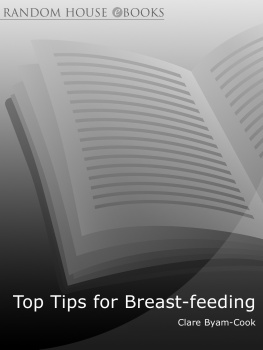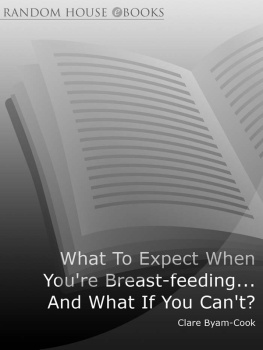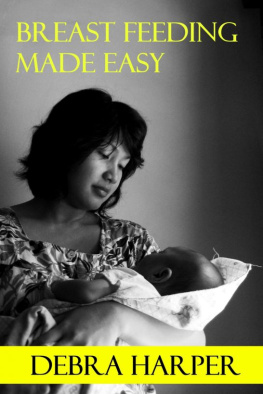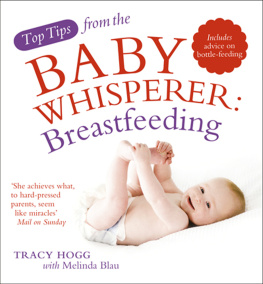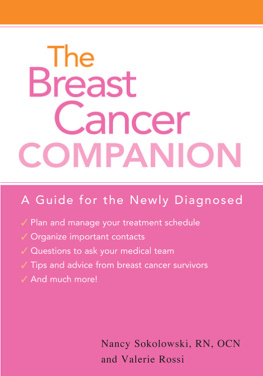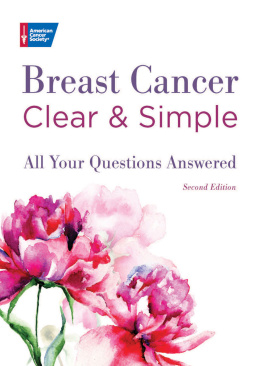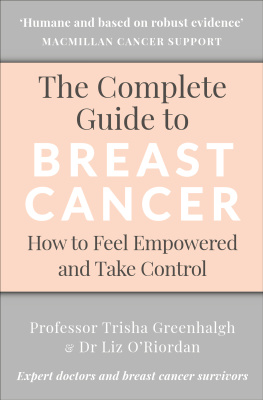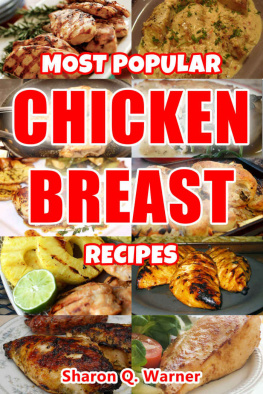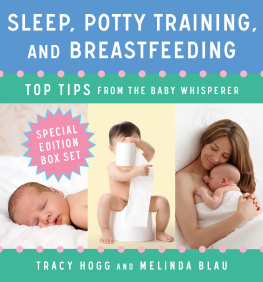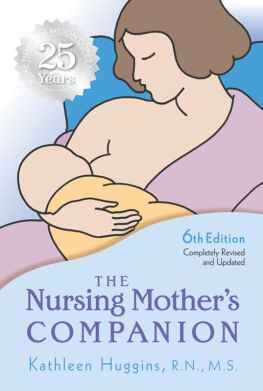Contents
About the Author
Clare Byam-Cook trained as a nurse at Westminster Hospital and qualified in 1976. After going on to do a midwifery course at Pembury Hospital in Kent and qualifying as a midwife in 1979, she then worked for four years at Queen Charlottes Hospital in London until the birth of her first baby. In 1989 Clare was approached by ante-natal teacher Christine Hill to join Hills Chiswick practice as her breast-feeding specialist and she has been there ever since.
During her years working with Christine Hill, Clare has gained invaluable experience in everything to do with breast-feeding, bottle-feeding, crying babies (and crying mothers!), and everything else associated with the day-to-day care of newborn babies. In addition to teaching at the ante-natal classes, she makes home visits to any mother who asks for her help, and says she has learnt more about babies and feeding problems from doing these home visits than in all her years spent working as a hospital midwife.
Clare has gained a reputation for being able to solve almost any breast-feeding problem and all her clients come to her by word-of-mouth referral from their friends, GPs, obstetricians, paediatricians, midwives and health visitors. Clare has never advertised her services and says that when the referrals dry up she knows it will be time for her to retire!
Clare feels that there is no better experience to be acquired than by being in a position to see the same problems time and time again. As a result, most of the advice she gives in this book is based on the knowledge she has gained during the many years she has been doing these home visits. It is not based solely on textbook theories.
In praise of Clare Byam-Cook and her advice
Whenever I refer patients to Clare I am confident that, if the problem can be solved, she will solve it. Her expertise and calm, confident manner have provided help and reassurance to countless mothers over the years.
Dr Tim Evans, Royal Physician
With Mia I had real problems getting her to latch on and was close to giving up when I got advice from Clare. I just cant praise her enough she has a really straightforward way of describing the latching-on technique.
Kate Winslet
As a first-time mum, Clare gave me the confidence to breast-feed successfully and to appreciate that, with the right technique, it can be a totally pain-free and profoundly bonding experience with your baby. It was only because of Clare that I managed to do seven months.
Trinny Woodall
This book should be handed out with the first contraction. Clare is a true baby whisperer who will save you and your baby hours of torment. Her kind, common-sense and amazingly informed advice was as essential to me as breast-pads and chocolate. Buy this book!
Kate Beckinsale
I booked Clare to come round the day my fourth child was born, and the breast-feeding has, for the first time, worked from the first day.
Emma Freud
Breast-feeding is one of those things you go through life assuming to be natural and easy, but when I was pregnant I began to hear lots of horror stories about bleeding nipples and awful pain. So I booked Clare to come and see me by way of a pre-emptive strike. It was fantastic. She showed me how to place the baby at the right level using a pillow and pretty early on I was able to feed him, hands-free.
Helena Bonham Carter
When I read Clares book I realised how much I had to learn, and how much could so easily go wrong. The hour or so I spent with her was one of the most valuable in my motherhood preparation. I always thought that breast-feeding would be a chore but I have to say it is one of the highlights of my day.
Gabby Logan
I have very gratefully accepted Clares straight-talking, no-nonsense approach Clares invaluable help has resulted in two happier parents as well.
Atul J Sabhawal, Consultant Paediatric Surgeon
Clare really knows what she is talking about.
Dr John Fysh, Consultant Paediatrician
It was such a relief to read common-sense advice that was not pompous or judgemental.
Letter from a breast-feeding GP
Why isnt your book given to every mum and/or midwife?
Letter from a client
Authors Note
I wrote my first book, What to Expect When Youre Breast-feedingand What if You Cant?, to explain how breast-feeding works and what to do if it goes wrong. Breast-feeding is not as easy as everyone makes out (about 50 per cent of mothers give up in the first six weeks) so mothers clearly need more help and advice than they are currently getting. That book covers everything in great detail and is perfect for parents who want to know all the whys and wherefores of breast-feeding, with full instructions and explanations.
However, not every mother wants this much detail and would prefer a smaller and simpler guide to breast-feeding that can be read quickly in a crisis. This book is a bit like the quick start guide that comes with your new TV it gives you all the information you need to get started and has easy-to-read trouble-shooting sections if things go wrong.
I recommend that you pack this book when you go into hospital so you have it to hand as soon as your baby is born. Many mothers sail through breast-feeding but others struggle and need help very early on. It is also widely acknowledged that many mothers receive a lot of confusing and contradictory advice when they are in hospital and it is hard for them to know whose advice to follow. This book should help you decide.
I hope that everyone who reads this book will succeed at breast-feeding, but if you cant manage it do not feel a failure. As you will see in this book, there are genuine reasons why some women cant breast-feed and formula milk is not liquid poison! The most important thing is that you and your baby are happy and thriving, and that he gets enough milk.
Note: For simplicity and ease of writing, I refer to the baby throughout the book as he and to the father of the baby as your husband. This does not mean that I assume all babies are male and that everyone is married!
1 Preparing for Breast-feeding
THERE IS VERY little advance preparation needed for breast-feeding other than eating healthily and researching what equipment you will want/need to make feeding go smoothly. Even if you are planning to breast-feed exclusively, I do recommend that you have some bottle-feeding equipment in the house for the following reasons:
- Problems may arise that, temporarily, make breast-feeding difficult (for example, sore nipples, or the baby is unable to latch on).
- Your baby needs to learn to feed from a bottle as well as the breast so he will happily make the transfer if/when you have to stop breast-feeding.
- Very few babies are breast-fed up until the point where they can go straight from breast to beaker.
You will need:
- a box of disposable breast-pads or a minimum of 18 washable ones
- at least three well-fitting maternity bras
- nipple cream (I highly recommend Lansinoh)
- at least one bottle and teat
- a bottle brush
- a steam steriliser, or a small bottle of sterilising fluid or packet of sterilising tablets
- a breast pump ()
You may also need:
- two nipple shields
- two breast shells (if your breasts leak a lot of milk in between feeds)
- a small carton of ready-made formula milk (for use in an emergency only)
Breast pumps
These are an invaluable aid to most mothers. You might need one because:
Next page
